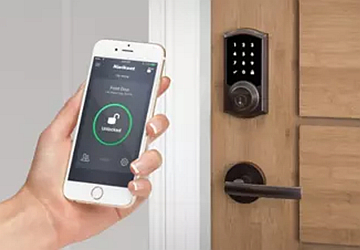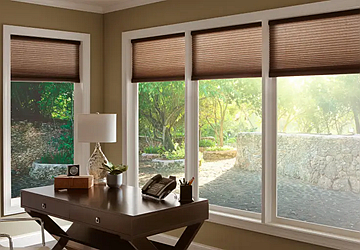Home Insurance: 10 Ways Smart Home Technology is Changing the Game
From smoke detectors that double as personal assistants to locks and switches that recognize and react to your mood and gestures, smart home technology is changing the game in ways you never thought you might need. Smart home technology is here to stay, and even get better over time. That's right, folks; we talk about the latest technology in home automation and the lasting impact it's having on the insurance industry.
Popular Smart Home Technology
Before we delve into the relationship between smart home technology and home insurance. First, let’s review some popular smart home technologies;
Smart thermostats: These devices learn your schedule, adjust the temperature to your liking, and can even be controlled remotely through a smartphone app.
Smart Security Cameras: These cameras can be accessed anytime, anywhere, and they can send notifications to your phone when they detect motion, making it easier to keep an eye on your home while you're away.

Smart locks: These locks can be controlled remotely with a smartphone app and can even be programmed to unlock when you come within a certain distance of your home.
Smart smoke alarms: These can detect smoke and carbon monoxide, send an alert to your phone, and even provide voice commands to help you escape safely in an emergency.
Smart lighting: These devices allow you to control lights remotely, set schedules, and even adjust the brightness and color of lights to suit your mood.
Smart outlets can turn your non-smart appliances into smart ones, allowing you to control them remotely and set schedules.
Smart speakers: These devices let you control your smart home devices with voice commands, and even play music, answer questions, and more.

Smart blinds: These blinds can be controlled with a smartphone app or voice commands, allowing you to customize the amount of light that enters your home.
Smart Water Sensors: These sensors can detect water leaks and send an alert to your phone to help you prevent water damage and save money on repairs.
Smart home hubs: These devices can act as a central control hub for all your devices, making it easier to manage and control everything from one place.
Note: Smart home technology is not a foolproof solution. As with any technology, it can fail or be vulnerable to hacking. That's why it's important to choose a reputable brand and keep your device up to date with the latest software updates and security patches.
With that in mind, here are the top 10 ways these popular smart home devices are revolutionizing home insurance.
Precaution
Gone are the days of relying on neighbors to monitor your home while you're out. With smart home technology, you can monitor your home from anywhere in the world. Plus, many smart home devices can take preventative steps to keep your home safe. For example, a smart smoke detector can alert you to a potential fire before it gets out of control, while a smart lock can deter burglars from trying to break in.
Real time monitoring
Smart home technology also provides real-time monitoring of your home. In the event of a theft or other emergency, you'll be notified immediately. Some insurers are even offering discounts to customers who use smart home technology because it reduces the risk of damage to the home.
Remote access
One of the greatest benefits of smart home technology is remote access. You can control your device from anywhere in the world with your smartphone or tablet. This means you can use it at work, on vacation, or while running errands.
Energy efficiency
Smart home technology can also help you save on home insurance premiums by improving energy efficiency. For example, a smart thermostat can save you money on electricity bills by automatically adjusting the temperature in your home based on your preferences and habits. Insurance companies take note and offer discounts to customers who use smart thermostats and other energy-efficient devices.
Water damage prevention
Flood damage is one of the most common causes of damage for home insurance. Smart home technology can help prevent water damage by monitoring for leaks and shutting off the water supply if a leak occurs or a pipe bursts.
Carbon monoxide detection
Carbon monoxide is a silent killer, and many people are unaware of its dangers. Smart home technology can detect carbon monoxide and alert you when concentrations reach dangerous levels, potentially saving your life.
Improve home security
Home security is one of the most important improvements in smart home technology. Smart cameras, motion sensors, and sirens work together to deter burglars and secure your home.
Personalized insurance
Smart home technology enables insurance companies to provide personalized coverage based on your home and lifestyle. For example, if you have a smart security system, you may be eligible for a discount on your home insurance premium.
Quick response
When an emergency occurs, smart home technology can help emergency services respond quickly. Smart home devices can detect smoke, carbon monoxide and other potential hazards and immediately alert emergency services.
Inner Peace
In the end, perhaps the most important advantage of smart home technology is determinism. Knowing that your home is monitored and protected 24/7 can take a huge burden off your shoulders, especially if you travel a lot or have kids at home.
Smart Home Insurance
It is important to have the right insurance for your smart home devices in case they are stolen, damaged or lost. Smart home insurance is a type of home insurance that utilizes smart home technology to prevent damage and loss to your home and personal possessions. With smart home insurance, you may be eligible for discounts on your premiums for installing smart home devices that help prevent damage or loss. If you haven't invested in smart home insurance, now is the time. Not only will you protect your home and family, but you will also save on your home insurance premiums.
Diploma
The integration of smart home technology and the insurance industry is changing the way we protect our homes. Preventative measures, real-time monitoring, remote access, energy efficiency, water damage prevention, carbon monoxide detection, improved home security, personalized insurance, quick response and peace of mind combine to make smart home technology a must-have for every homeowner. As technology continues to evolve, we can only expect smart home devices to change the insurance industry and our lives in more innovative ways.


